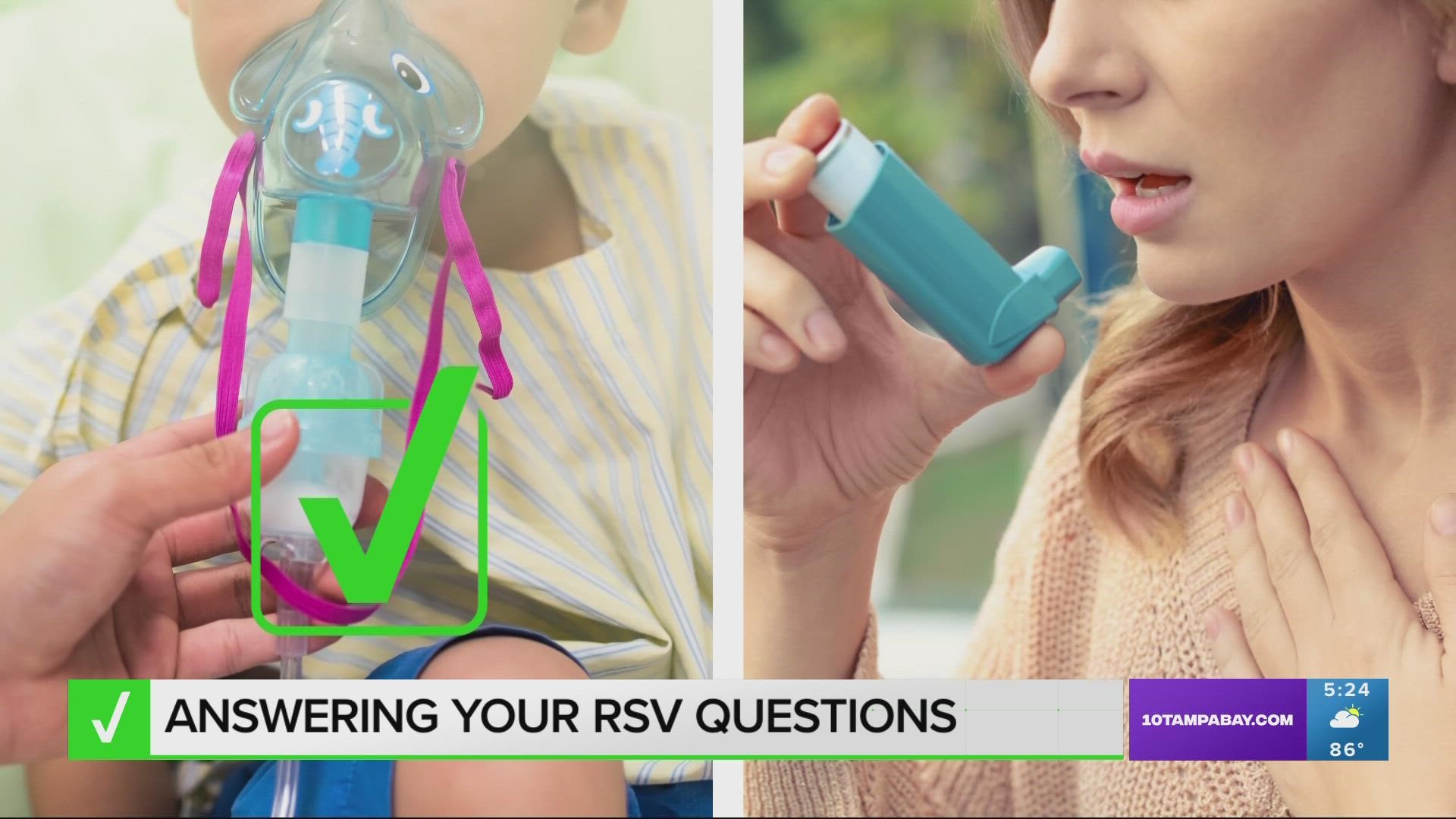ST. PETERSBURG, Fla. — Tampa Bay area counties are seeing an above-average number of cases of respiratory syncytial virus (RSV) in their communities, according to the Florida Department of Heath.
The increased cases are being monitored in Hillsborough, Pasco, Pinellas, Polk, and Sarasota counties, according to the FDOH in the areas impacted.
RSV could cause a higher number of pediatric emergency department visits compared to years passed, according to health officials.
The virus is "an infection of the lungs and respiratory tract with symptoms similar to a common cold. Mild symptoms may include congested or runny nose, dry cough, low-grade fever, sore throat, sneezing, and headache," the Florida Department of Health says.
RSV should still be taken seriously. According to the CDC, it can cause more severe infections like bronchiolitis and pneumonia. Some people with RSV, especially older adults and infants under 6 months old, may need to be hospitalized if they are having trouble breathing or are dehydrated.
You can prevent the spread of RSV by following the tips from the CDC below:
- Cover your coughs and sneezes with a tissue or your upper shirt sleeve – not your hands.
- Wash your hands often with soap and water for at least 20 seconds.
- Avoid close contact, such as kissing, shaking hands, and sharing cups and eating utensils with others.
- Clean frequently touched surfaces such as doorknobs and mobile devices.
Parents of children at high risk for developing severe RSV disease should:
- Avoid close contact with sick people.
- Wash your child's hands often with soap and water for at least 20 seconds.
- Avoid touching your child's face with unwashed hands
- Limit the time your child spends in child-care centers or other potentially contagious settings, especially during fall, winter, and spring.

